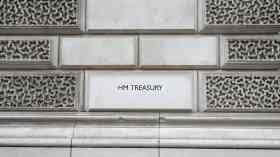Sue Robb of 4Children talks to Julie Laughton and Alison Britton from the Department for Education about the role of childminders in delivering the 30 hours free entitlement.
Environment Agency sets out Methane Action Plan

The Environment Agency (EA) has set out what it is doing to reduce methane emissions in England in a new Methane Action Plan for 2024 to 2026.
The Methane Action Plan sets out how they will reduce methane emissions using our powers as an environmental regulator whilst also sharing knowledge and good practice to reduce methane emissions in the UK and internationally.
The EA has a regulatory role in reducing methane emissions in England, and their new plan has laid out three priority objectives.
Firstly, it plans to improve the data of sectors the EA regulates to support better decisions and targeted action by improving how methane is measured, monitored, reported and modelled.
The Plan will also maximise the effectiveness of the EA's regulation. This will supposedly be done by reducing and where possible preventing emissions from sectors they regulate for methane losses, such as landfill sites, and anaerobic digestors operating under Environmental Permitting Regulations.
The EA will additionally work with external partners to share knowledge to improve the UK's collective understanding of how to reduce methane, measuring standards and monitoring approaches.
Methane is recognised as a priority pollutant requiring capture and control for certain sectors we regulate, such as landfill sites, and anaerobic digestors operating under Environmental Permitting Regulations (EPR).
The EA said they will also work with other sectors, including water companies and farmers, to reduce their methane emissions through their compliance with regulatory requirements that also help control methane or by supporting them to develop voluntary actions, such as industry codes of practice, or by sharing information and research on reducing emissions.
Methane is the main component of natural gas, with 60 per cent of global emissions coming from human activity. Methane can contribute to deteriorating air quality and impacts on human health.
It is also a greenhouse gas and a major contributor to global climate change which is around 28 times stronger than carbon dioxide.
In 2022, the UK signed the Global Methane Pledge to try and reduce global methane emissions by at least 30 per cent by 2030 compared to 2020 levels.
Company Focus
Located in Bromley, Japanese Knotweed Eradication Ltd has been providing solutions in the treatment and removal of Japanese Knotweed (Fallopia Japonica) for over a decade. During this time we have mastered a repertoire of methods, from herbicidal treatments to landscaping solutions, tailored to address the unique challenges our clients face with this pervasive weed.
Event Diary
UKREiiF has quickly become a must-attend in the industry calendar for Government departments and local authorities.
The multi-award-winning UK Construction Week (UKCW), is the UK’s biggest trade event for the built environment that connects the whole supply chain to be the catalyst for growth and positive change in the industry.
Supplier Profiles
Geo Energy
At GeoEnergy Design, we're on a mission to disrupt the traditional way heating and cooling ha
Latest Features
Professor Harith Alani, director of the Knowledge Management Institute at the Open University explains how AI can be used for good and bad.
Alex Lawrence, head of health & social care, techUK sets out techUK’s Five Point Plan for CareTech.

















